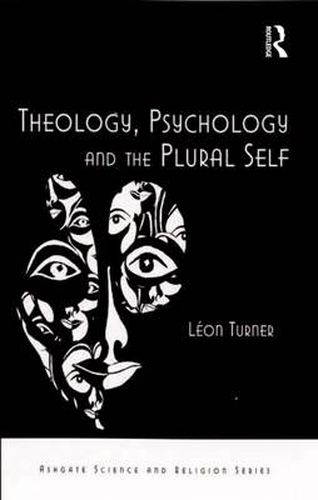Readings Newsletter
Become a Readings Member to make your shopping experience even easier.
Sign in or sign up for free!
You’re not far away from qualifying for FREE standard shipping within Australia
You’ve qualified for FREE standard shipping within Australia
The cart is loading…






Is the human self singular and unified or essentially plural? This book explores the seemingly disparate ways that Christian theology and the secular human sciences have approached this complex question. The latter have largely embraced the idea of the plural self as an inescapable, even adaptive feature of psychological life. Contemporary Christian theology, by contrast, has largely neglected recent psychological accounts of the naturalness of self-plurality, and has sought to reaffirm the self’s unity in opposition to those postmodern theorists who would dismantle it.
Through an original analysis of recent theological and secular accounts of self and personhood, this book examines the extent of the intertheoretical disparity and its broader implications for theology’s dialogue with the human sciences in general, and psychology in particular. It explains why theologians ought to take questions about the plurality of self very seriously, and how they overlap with many of the central concerns of contemporary theological anthropology, including the notions of relationality, particularity and human sinfulness. Introducing a novel psychological framework to distinguish various understandings of self-disunity, the author argues that contemporary theology’s blanket condemnation of self-multiplicity is misconceived, and identifies a possible means of reconciling theological and human scientific accounts.
$9.00 standard shipping within Australia
FREE standard shipping within Australia for orders over $100.00
Express & International shipping calculated at checkout
Is the human self singular and unified or essentially plural? This book explores the seemingly disparate ways that Christian theology and the secular human sciences have approached this complex question. The latter have largely embraced the idea of the plural self as an inescapable, even adaptive feature of psychological life. Contemporary Christian theology, by contrast, has largely neglected recent psychological accounts of the naturalness of self-plurality, and has sought to reaffirm the self’s unity in opposition to those postmodern theorists who would dismantle it.
Through an original analysis of recent theological and secular accounts of self and personhood, this book examines the extent of the intertheoretical disparity and its broader implications for theology’s dialogue with the human sciences in general, and psychology in particular. It explains why theologians ought to take questions about the plurality of self very seriously, and how they overlap with many of the central concerns of contemporary theological anthropology, including the notions of relationality, particularity and human sinfulness. Introducing a novel psychological framework to distinguish various understandings of self-disunity, the author argues that contemporary theology’s blanket condemnation of self-multiplicity is misconceived, and identifies a possible means of reconciling theological and human scientific accounts.